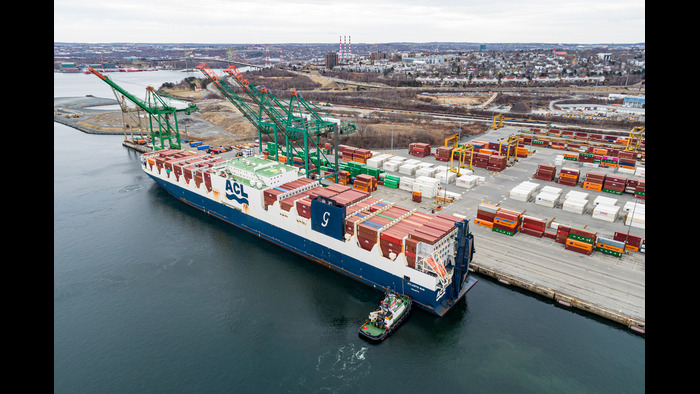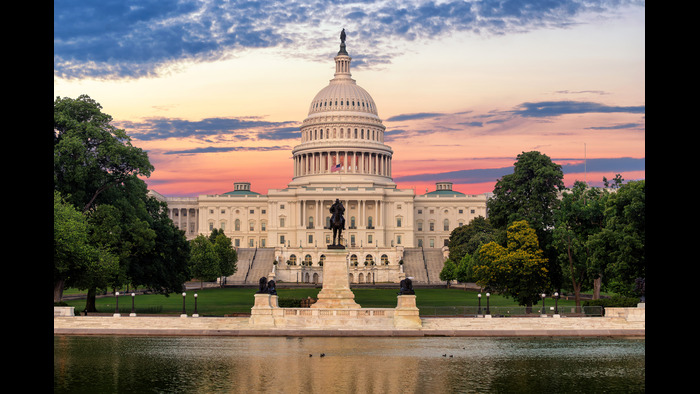Retailers Challenge Policymakers: Rise Above Partisan Divide
State of the Union Statement
- By [ Michael Hanson ]
- Washington, DC
- 03/06/2024
“In a presidential election year, it’s easy for partisan attacks to usurp the spotlight and take away from the complex work of problem solving for the American people. This has become an unfortunate reality of our political system that ignores the challenges facing communities across the country. Retailers urge our elected leaders to defy conventional election year distractions and instead support policies that protect consumers and ensure a strong and vibrant economy.”
Retail Theft:
“Leading retailers appreciate Congress and the Biden-Harris administration’s effort to combat organized retail crime. A next step must be to harness the depth and breadth of federal law enforcement by creating a task force that works closely with retailers to stop organized crime rings from targeting our stores and harming our associates.”
Supply Chain:
“We support the administration’s efforts to create a resilient, efficient and data driven supply chain, and stand ready to continue to work with all agencies dedicated to achieving this goal.”
Credit Card Swipe Fees:
“The Biden-Harris administration has made addressing competition issues in the U.S. economy a top priority. RILA strongly encourages the White House to support legislative reforms on Capitol Hill to the credit card market that will bring more competition to the payments arena and will lead to benefits for all Americans and retailers.”
Taxes:
“Retailers support a tax code that is stable, fair and promotes investment, job growth and innovation. Leading retailers supported the minimum corporate tax to ensure all profitable companies pay their fair share, but we will staunchly oppose any increase to the corporate tax rate which is disproportionally paid in full freight by retailers.”
Tariffs:
“The President should also remove harmful 301 tariffs on consumer products. Tariffs are taxes on the products American families buy every day, and since their enactment beginning in 2018, they have failed to deliver any meaningful trade concessions from China. Instead, American businesses have paid over $208 billion in taxes. It’s time for the president to act and remove the tariffs on consumer goods.”
Workforce:
“Leading retailers also hope the administration will consider the impacts of new regulations that will undermine the ability to create a 21st Century Retail Workforce that is diverse, innovative, and skilled. Relying on outdated labor laws which impede innovation, disrupt communication between employers and employees, and stifle employee rights isn’t the answer. Policies must reimagine a workforce that empowers workers, promotes innovation, ensures flexibility, and enables retailers to invest in their people and communities.”
Conclusion:
“These issues impact the more than 52 million jobs the retail industry supports, our customers, and the vibrancy of the communities that we operate in. They are not partisan issues - they are challenges worthy of bipartisan cooperation.
“Leading retailers stand ready to work with President Biden and members of Congress from both parties on ideas that will safeguard our communities and grow the economy for all Americans. No one can solve these issues alone. Collaboration shouldn’t be demonized, even in an election year. Retailers remain hopeful progress can be achieved when all stakeholders do their part. Retailers will not be waiting for election results to get started.”
###
RILA is a trade association of the world’s largest, most innovative, and recognizable retail companies and brands. RILA members include more than two hundred retailers, product manufacturers, and service suppliers, who together employ over 52 million Americans and account for $2.7 trillion in annual sales and hundreds of thousands of stores, manufacturing facilities, and distribution centers domestically and abroad.
Tags
-
Public Policy
-
International Trade
-
Payments
-
Supply Chain
-
Workforce
-
China Trade Tariffs



